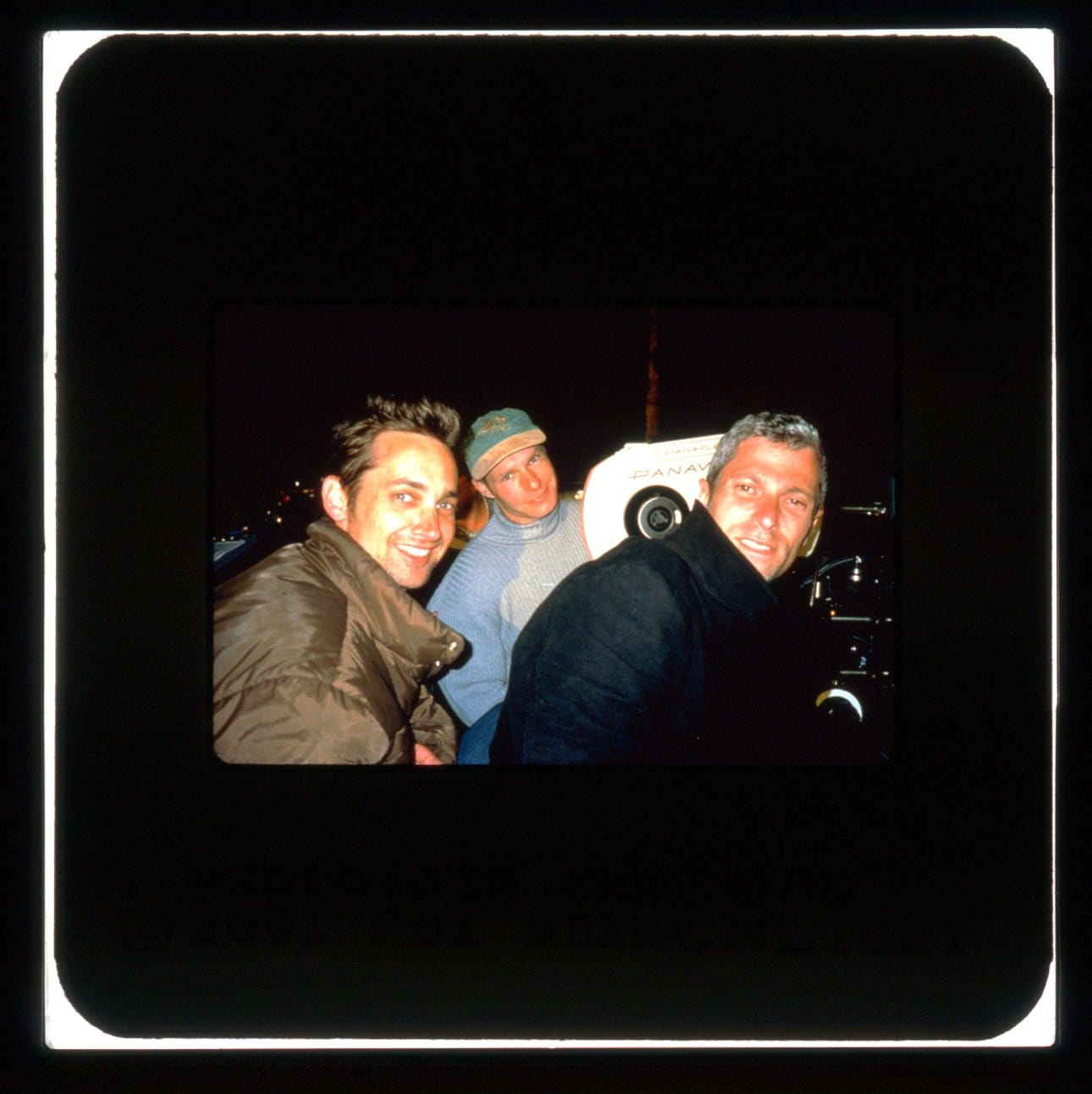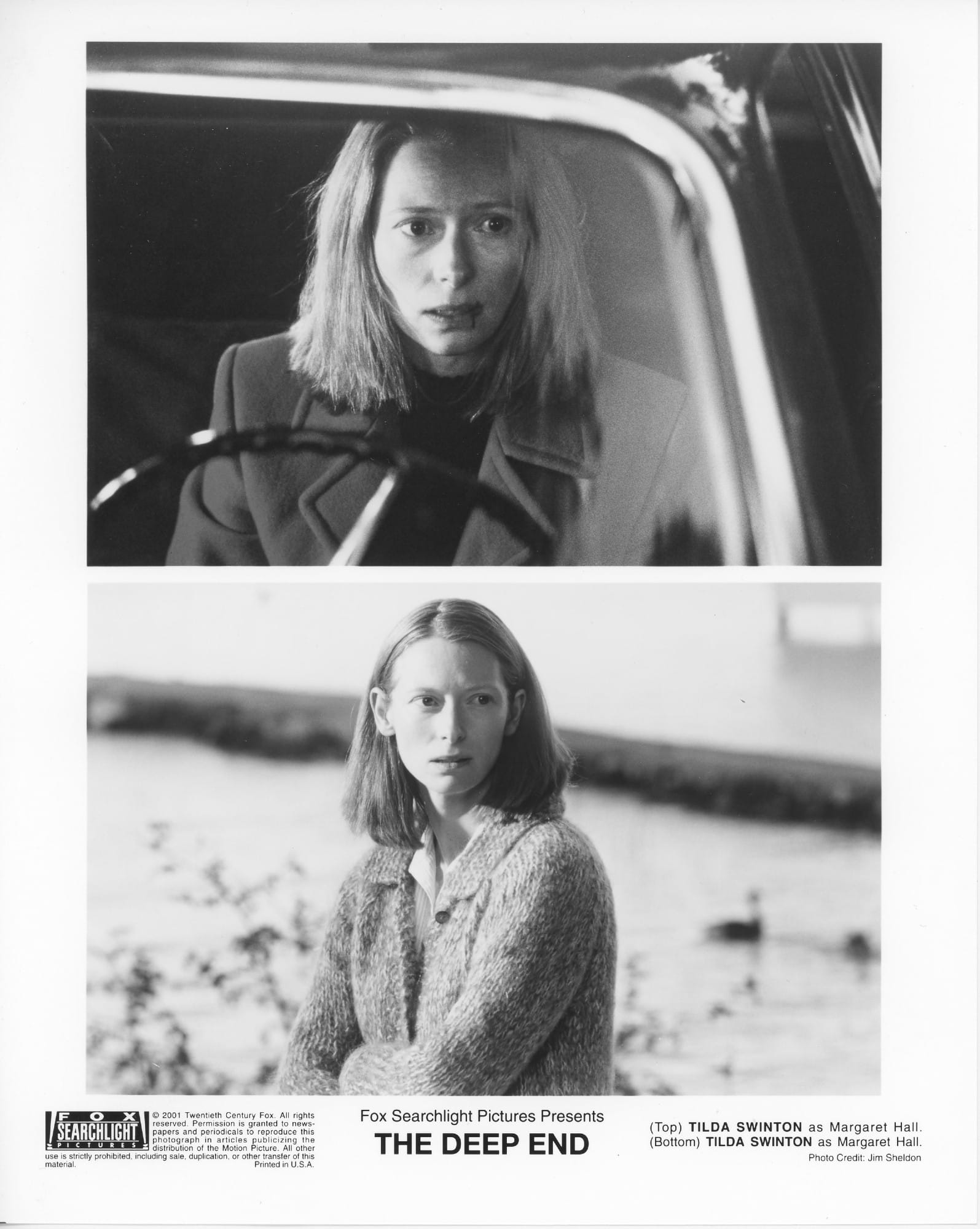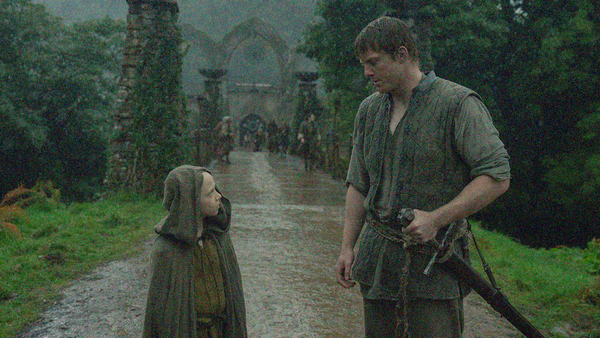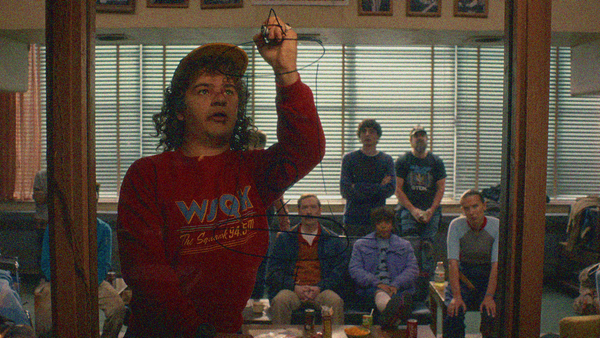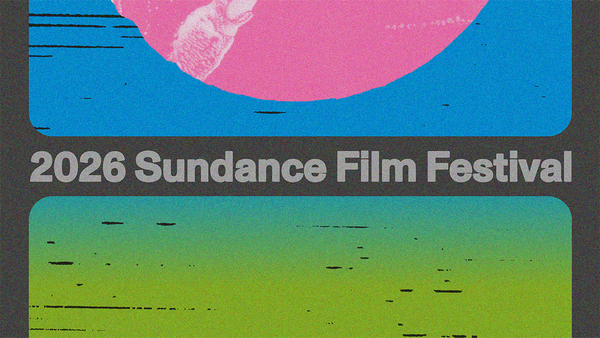Week Ending 11/21/25
Letterboxd-buster

Letterboxd is getting a Blockbuster-style upgrade next month as they begin to integrate a rental service directly into their existing interface. Rather than be another VOD platform like Prime and AppleTV, however, the social media site is going bespoke with a user generated radar. The idea is that they will seek out films their members have been trying to find via watchlists and requests. It's a smart strategy insofar as knowing the titles Letterboxd pays to stream already have a built-in demand.
And I love the concept behind their virtual "shelves" as broken down in their press release:
- Festival standouts that are yet to be distributed.
- Long-watchlisted titles finally made available.
- Restorations and rediscoveries worth celebrating.
- Limited-time drops of sneak peeks and unreleased gems (only here for a short time).
- We program these shelves using millions of watchlists, reviews and other secret sauce signals. It’s like walking into your local video store and seeing the “employee picks” shelf—and those employees are countless Letterboxd members across the globe.
So, the plan is to acquire films you cannot see anywhere else. The potential is therefore huge where market share is concerned due to little competition as far as profit. But there's also the potential to show distributors that they were wrong about some titles they didn't think would sell. If Letterboxd releases their viewing stats, you can feasibly see this as a boon for independent and foreign productions to secure a future pick-up.
It'll all be a la carte too. No streaming fees (yet). Just a one-time price (presumably sliding scale depending on the title and "shelf") for each rental.
And if that sounds familiar to some of you ... well, it is. This is pretty much the exact same model MUBI utilized early on in their evolution before going full subscription. I can't remember if they did it way back in their The Auteurs days (pre-2010), but its initial social media angle used to hinge on conversing about and reviewing films you saw on the platform itself. You would buy credits and then spend them on available titles—many of which weren't available elsewhere because streaming wasn't really a thing back then.
Old is therefore new again, but the service tweaks and the fact that Letterboxd built its social aspect up before introducing rentals might pay dividends. I'll still assume it's a "when" rather than "if" as far as them becoming a full-fledged streamer in two-to-three years, though.

Cutting Through Rocks
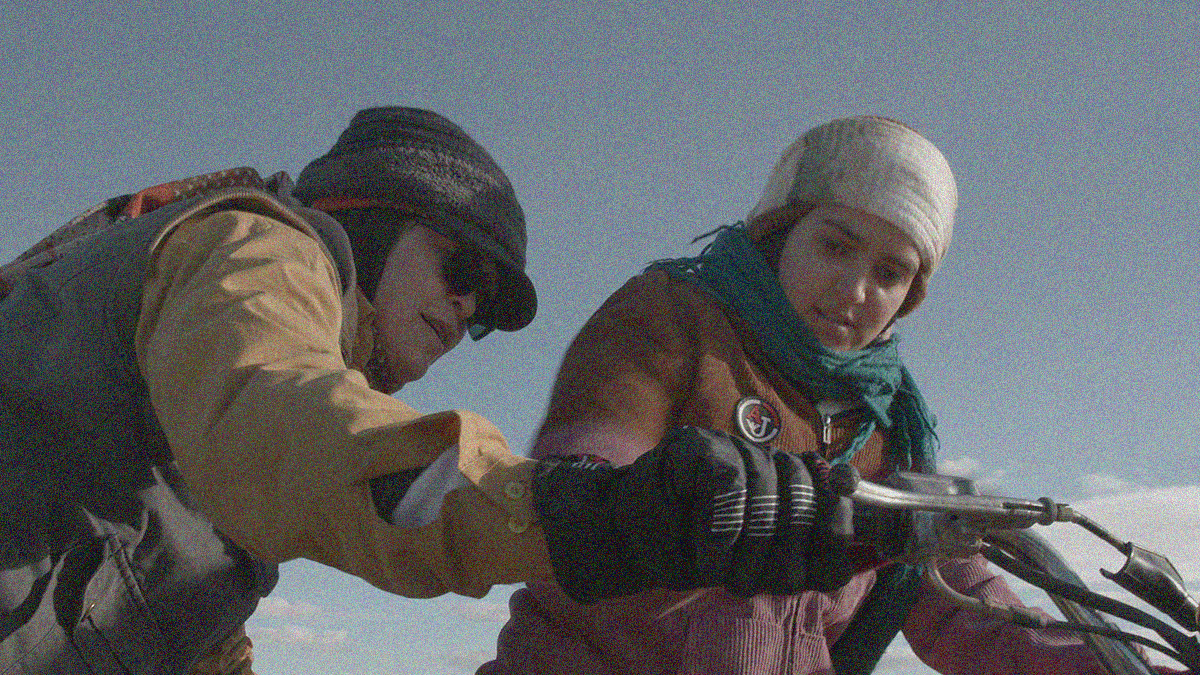
Once we discover Sara Shahverdi is running for village council, we can assume what's going to happen next. Her victory is almost assured regardless of there never having been a woman elected because we recognize just how much the Iranian area's youth (she was midwife to many) and women champion what she stands for as a pillar of feminist strength amidst patriarchal tradition (the men always add 'tradition' when discussing 'rules' as though they're synonymous). But history tells us radical wins rarely lead to substantial progress right away.
As Cutting Through Rocks filmmakers Sara Khaki (an Iranian American who's lived half her life in both countries) and Mohammadreza Eyni (a Turkish Azeri speaker who grew up in the same region as Shahverdi and knew he could never gain this access to their subject and the women she helps alone) reveal through the eight years they followed Sara, however, democracy can still wield power if the person elected by the people has enough integrity to act in their interests. Sara Shahverdi's promises were solid. Her intent was pure.
As a result, we begin to feel as hopeful as she does about the changes she's striving to enact. Because it's not just about infrastructure like a new park and long-awaited gas lines to village homes. It's also about curbing widespread corruption at the hands of elders who refuse to evolve and empowering young girls and their too-young mothers to fight for education over pre-teen marriage. To watch as Sara shrewdly uses the gas service to force men into giving their wives ownership of their land is impressive. She knows exactly which buttons to press.
The reason why is a captivating tale itself considering how fate and tragedy led Sara to possess the confidence so many women in this community lack. She was the sixth of six girls, and her father needed help working. So, he let her dress the way she wanted, taught her how to ride a motorcycle, and kept her in school while her sisters were getting ready to be married. Yes, Sara's parents would eventually have four boys too, but her father sadly passed away when they were still too young. She was sixteen at the time and became the family's breadwinner.
What I really enjoyed about the film is that we see first-hand just how much the gender inequality dealt with as "normal" is cemented via indoctrination. Whenever a neighbor is abusive to his niece for daring to have fun or a brother is patronizing to Sara and demanding she fall in line, she calls out the fact that none of them had problems with who she was or how she lived her life in youth. She was one of two girls in an all-boys' class. She fulfilled the duties of her father when her siblings couldn't. It's only "bad" now that it threatens their control.
Even so, I didn't expect how insidiously that control would be weaponized. Sara's brother sabotaging her work to call it his own was obvious. The council elders' complaining about needing her permission to stamp official documents (the member who earns the most votes has always received the stamp and their disappointment that she isn't taking the role "seriously" is because she won't just approve their illegal plans bought by monetary and political bribes) perfectly exemplifies how toxic men are babies. This stuff happens everywhere.
I wasn't even surprised that a complaint was filed accusing Sara of having a "dishonorable" house since calling a woman a whore or lesbian has always been an easy way to vilify them. Where that accusation led via the court system, however, was absolutely insane. Khaki and Eyni set the stage by bringing us inside teenage Fereshteh's divorce hearing as far as showing how a judge would rather tell a woman to compromise and subjugate herself to her husband or father than admit a power imbalance, but it still didn't prepare me for what was threatened.
That's a product of my naïveté, though. It's my American brain still believing in a time where morality and decency would somehow prevail over injustice. That calls to question a person's identity in order to defame them for personal gain would only play out in the court of public opinion rather than an actual courtroom. Because the elders in Sara's village don't just seek to ruin her reputation. They set into motion a process to physically change her in a way that forces her to conform to their archaic psychopathy.
It's one of many sobering realizations by the end of Cutting Through Rocks that exposes how progress and hope move much slower than tyranny and oppression. Yes, Sara's victory showed this village wanted a better future, but it also lit a fire under those who thought their status as rulers was secure. We saw it here in America when Obama became president. Eight years of progress for one side's thinkers became eight years of fomented hate for the other's bagmen. It's one step forward, two steps back, but the seeds for real change are planted, nonetheless.
8/10
Elio

The joke that Elio keeps saying he's "shredded" as proof of having quality leadership qualifications definitely hits differently after reading reports that Pixar brass systematically removed all potential "queer-coded" content from the character to make him more "masculine."
That the film ultimately still excels as a fun and heartfelt journey towards belonging for two characters who feel like outsiders in their own home (Elio) and culture (Glordon) is surely a testament to the autobiographical bones original director Adrian Molina imbued by basing the entire film on his experience growing up on military bases and finally finding his community at CalArts (where he began developing the story). He eventually left the project to focus on Coco 2.
I understand why the label "generic" has been thrown around due to the finished product being mostly stripped of its queerness and Latinx representation—save a couple throwaway words in Spanish (America Ferrera left shortly after Molina), but I don't think it fails on its own merits. Yes, it could have been more memorably unique and, yes, that sort of creative sabotage is an abhorrent practice, but this is still pretty solid.
Global ham radio enthusiasts who just so happen to also be genius physicists for the win.
7/10
Every Contact Leaves a Trace

Beginning with the idea of "trace evidence," filmmaker Lynne Sachs seeks to discover if genetic material and fingerprints remain attached to the six hundred or so business cards she's collected over the years. The idea is that these pieces of cardboard maintain markers of the people they represent beyond contact information that often becomes outdated in the time since receipt. More than these scientific remnants, however, are also memories steeped in emotional connection. Why have some of their owners vividly imprinted upon her mind?
Every Contact Leaves a Trace is the result of Sachs' fascination with this tactile phenomenon that has all but been erased with the advent of cellphones and digital address books. She exposes this generational divide by enlisting her twin niece and nephew (Felix and Viva Johnson Sachs Torres) as soundboards with which to ask if they'd ever keep a collection of cards like this themselves. They of course say no because the technology has objectively become obsolete and I admittedly felt sad for them since business cards played a big role in my own life.
I too have a book of cards from the early aughts and became fascinated with the potential of graphic design as a career through the ingenuity they represent. I love the wild ideas Stefan Sagmeister came up with for his branding projects. He made something so simple and, perhaps, classist (see American Psycho) into unique objects with their own motion, puzzles, and artistry. His ability to make something so uniformly commonplace into an unforgettable keepsake left an indelible mark. Sachs' subject Bradley Eros' punched "tickets" recall this truth.
A similar thing happened with Sachs, but through the cards' scrapbook nature as symbols of their owners rather than objects in their own right. We watch as she leafs through her tote, shuffling them together like playing cards before putting them on her table one by one with brief commentary on whether she thinks the person is both someone she'd want to reconnect with and someone who'd be interested in participating in the film. In the end, Sachs chooses seven cards that hold a strong enough contact trace to hunt down their owners.
Betty Leacraft is a former student turned textile artist Sachs seems to remember more and have a stronger bond with than the other way around. Angela Haardt was the director of a German film festival she attended at twenty-nine and an in-road to better consider her heritage as a German Jew and her guilt towards what's happening in Gaza. Jiang Juan was the chairperson of the China Women's Film Festival in which Sachs was an invitee. Irina Yekimova is her hairstylist and bookend to the film who provides a great moment of epiphany.
The gist of this revelation is that we can only ever know what we know. Yes, these people have all left their mark on Sachs, but only insofar as what that mark means to her. She doesn't actually know any of them. Not really. Not wholly. There's a great moment where she rejects a card saying that she's pretty sure she already knows everything he's willing to let her know—proof that our understanding of the people around us is forever incomplete. We place our meaning on their words and actions. So, our truth isn't necessarily the truth.
Case and point: cards six and seven. One is that of a former therapist who Sachs couldn't track down. She instead hires actor Rae C. Wright to portray the character in a hypothetical scene wherein the filmmaker confronts her for what she believes was complicity to deceit. Through this exercise comes the acknowledgement that the words Sachs thought were permission could have been interpreted many different ways. But the way she did take them ultimately becomes the only "real" answer considering it's what drove her actions.
The other card is Lawrence Brose, a name I'm familiar with living in Buffalo and having gone to UB. A controversial figure due to his 2009 arrest for child pornography, Sachs voices the thought that maybe she should cut him from the film since that isn't why she contacted him. Her memory upon seeing his name concerned his experimental film De Profundis and it was only after they connected that she remembered the rest. But she decides to hear his truth about the arrest anyway and, perhaps, change her own ideas about him as a result.
Therein lies this journey's thesis. Whereas a contact trace in investigative terms purports to forensically find objective truth, there's always room for error (enough that the government offered Brose a plea deal but not enough to guarantee an exoneration). And when it comes to contact traces in terms of personal memory and impact, there's probably more error than truth due to perspective. Whether your memory is right or wrong, however, proves moot in hindsight. How you used it cannot be changed, but a new trace might still be left for tomorrow.
7/10
Dead to Rights
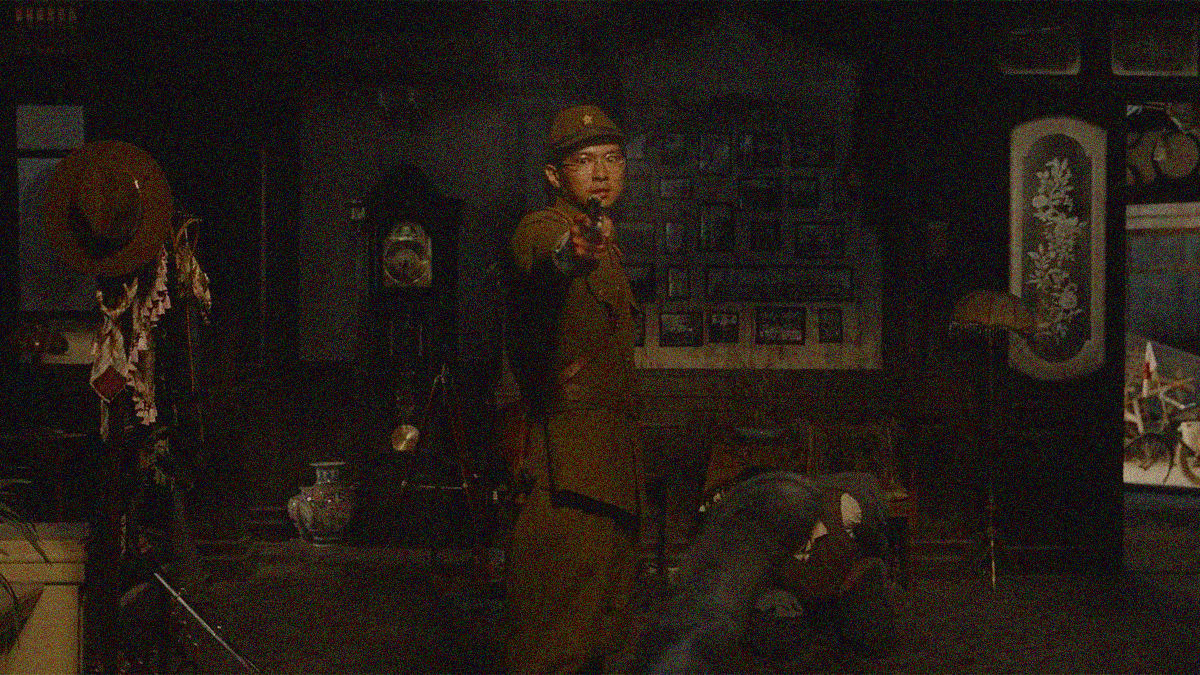
While Hitler hadn't yet invaded Poland, a Japanese offensive into China had already begun. Set in December of 1937, Shen Ao's Dead to Rights depicts one of the nation's ports of entry and the massacre that ensued. More than simply show the carnage in Nanjing, however, Shen and his co-writers Xu Luyang and Zhang Ke push inwards to focus on a young Chinese postman whose compassion and fealty to the job stranded him behind enemy lines. That's where Su Liuchang (Haoran Liu) unwittingly positions himself to ensure Japan pays for its atrocities.
The truth of what happened is made clear from the very start as Japanese promises to adhere to the Geneva Convention and treat surrendered Chinese soldiers well are quickly revealed to be lies. Those captured are bound and chained, kneeling in the streets when Japanese officers order their men to fire. And when their men refuse, those in authority remind them that the Chinese are animals and not to be thought of as human before aiming their own guns and shooting to prove it wasn't a ploy. Civilians are inevitably next.
Su's survival seems fated by how his bad luck in missing his chance to escape ultimately saves his life. So too does him holding a book of personal photos stamped by the studio that developed them. This insignia allows Ito Hideo (Daichi Harashima), a Japanese lieutenant (by rank only) and war photographer whose name reveals important familial ties that absolve him for never taking up his gun, to keep him alive due to needing someone to print the images he's been snapping for the regiment. Su buys his safety by saying he can do it.
Add Chinese translator Wang Guanghai (Wang Chuanjun), a traitor leveraging Ito's good will into earning passage papers for his wife and child, and we find three opportunistic men attempting to make themselves useful enough to not bear the brunt of the violence those surrounding them are only too happy to commit. Guanghai sees Su as a means to ingratiate himself further as a middleman. Ito needs Su to be his own personal Fotomat to ensure his shots get into the papers first. And Su needs them both to believe he's invaluable.
Luckily, the studio's actual proprietor is still hiding there when Su arrives. So, if Lao Jin (Wang Xiao) teaches and assists him in doing Ito's bidding, they can all earn more time and protection to hopefully live long enough for the war to end or escape. It's an intriguing wrinkle made more complex once Shen introduces two more figures in singer Lin Yuxiu (Gao Ye) and policeman Song Cunyi (Zhou You). Rather than convolute things, they actually work to diversify motives and remind us that acts of self-preservation often ensure collateral damage.
Dead to Rights exists in this moral gray. The filmmakers are constantly asking us to hope that decency might win out despite knowing it won't. That Ito's fear is actually pacificism and the others' work isn't traitorous because it's not actively leading to their countrymen's deaths. But Ito does condone the terror of rape, murder, and torture. His refusal to get his hands dirty doesn't absolve him since that blood and dismemberment is what he photographs. And the others working for the enemy in any capacity eventually leads to some form of complicity.
What unfolds is therefore very difficult to watch because the barbarism committed by Japan was downright evil. This is the same rhetoric that Nazi Germany used to exterminate Jews during the Holocaust. It's the same rhetoric Israel uses today to exterminate Palestinians. The notion that another human being is somehow inferior in a way that renders their life forfeit. The ease to throw someone to the wolves the moment they are no longer useful. The hideous impulse to think the only way to quiet a baby is to spike it into the ground.
How much of that horror can someone take? For those like Ito, the carnage might actually embolden them to join in. For those like Guanghai, it might break them to the point where they become numb to the consequences of saving their own skin. And for those like Su and his fellow fugitives, it radicalizes them to realize their own lives mean nothing compared to the bigger picture of what's happening. Because the longer they develop Ito's photos, the more they discover they have undeniable proof of Japan's war crimes in their hands.
The script follows the usual plot progression of these types of focused war films with examples of self-sacrifice, betrayal, heroism, and tragedy. Shen and company do well to understand just how much rope Ito's superiors would give him when it comes to allowing the enemy access to evidence that could lead to their own downfall and how their attempts to rectify the situation can lead to unforeseen heartbreak, righteous vengeance, and bittersweet victory for the Chinese. They give every character the choice to be noble. Some take it. Some don't.
Shen pulls no punches in his direction, scale, or production design, throwing us in the middle of this massacre with a cast that perfectly captures the tortured reality of their fate via silent tears and haunted faces. This is how you memorialize the dead and hold their murderers accountable—by emphasizing how this brutality has a cost beyond statistics. It's also how you open eyes to present-day examples of similar nightmares. The film digs into the power of propaganda and the necessity of bearing witness to expose truth at a time we need the reminder.
8/10
F1

We've all seen young upstart Lightning McQueen get accidentally dumped into Radiator Springs to finally learn the lessons of life and racing from grizzled vet Doc Hudson. But what if the down-on-their-luck Rust-eze Racing Team needed to recruit Doc to battle on the Piston Cup circuit thirty years past his prime to steward Lightning and save the company?!
Well, thanks to Joseph Kosinski and Ehren Kruger, the fan-fiction we didn't know we needed or wanted has arrived. And it's just as corny as that sounds with everyone from Kerry Condon's Sally and Callie Cooke's Guido finding the best versions of themselves thanks to the chaotic shot of energy only a reckless sixty-year-old can provide. I'm pretty sure the filmmakers found their "miracle" and worked backwards to set it up perfectly via the usual new guard meets old guard narrative conflict cinematic history loves.
The real question, though, is whether Apple can legally claim Chris and Liam Hemsworth as stars for that split second montage cut in Abu Dhabi. I'll await the verdict from the stewards.
7/10
In Your Dreams

You never know when the Sandman will flip the jukebox record over from The Chordettes to Metallica, so prepare yourself to tackle that genre shift's inevitable trouble whenever it does arise. Hopefully, you'll have the people you love beside you to make it through the flawed façade of fantasy in order to tackle the uncertainty of tomorrow together.
Baloney Tony's rancid vibes aside (Craig Robinson = innocent), this was a cute adventure into the chaotic emotions of adolescence. We become so desperate to maintain the familiarity of a status quo that we long for a life that actually deserves to be left in the past. So, those nightmares you're having might not be preventing your wish from coming true after all. They might conversely be instilling you with the strength necessary to realize its "too good to be true" scenario isn't quite the happy alternative you imagine. Reality's inherent messiness will always trump the sanitized conformity of a utopian lie.
And, yes, hot dogs can feel pain.
6/10
Köln 75
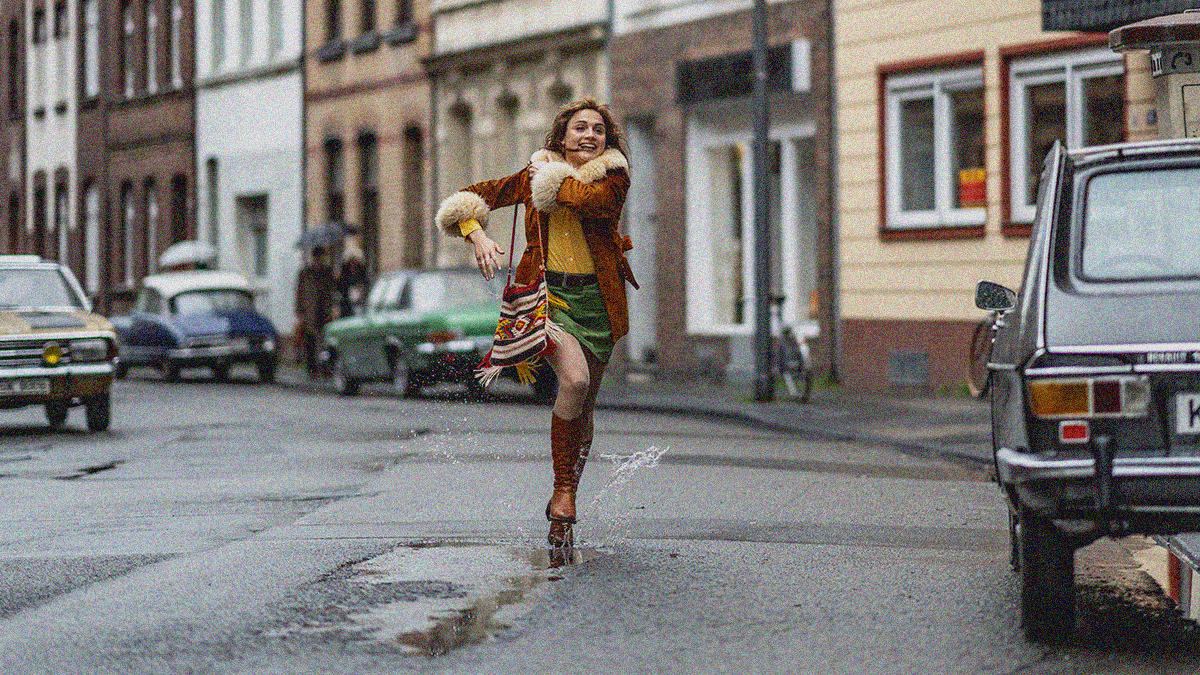
It was a concert that still lives on today thanks to a recording sold as The Köln Concert—an album that remains the best-selling solo jazz album and solo piano recording of all time ... despite the artist, Keith Jarrett, all but disowning it as an inferior product. Why? Because he was forced to play it on a baby grand rehearsal piano rather than the Grand Imperial he was promised. Because every one of his performances on this 1973 European tour was improvised and therefore built to find a favorite better suited to his own subjective taste.
But, as our omniscient narrator Michael Watts (Michael Chernus) explains at the very start, this film isn't about Keith Jarrett (played by John Magaro). It's about the "scaffolding" that made the show possible. The artist who orchestrated its infrastructure through two years of promoting experience despite just being sixteen when she started and eighteen when she booked Jarrett. Ido Fluk's Köln 75 is about Vera Brandes (Mala Emde). Her response to his phone call about gaining permission to center her as the lead character: "Finally."
If even half of her account of what happened is true (the usual "inspired by a true story" text is accompanied with the words "as told by Vera Brandes herself"), it's a crime this tale hasn't gotten out before. Because it's not just the insanity of a teenager making an indelible mark on the jazz scene in Cologne at a time when it was being reduced to "museum music," it's also the drive to find your identity and prove a career in the arts was worthwhile regardless of what people like her dentist father (Ulrich Tukur) believed.
And boy, is he a piece of work. We meet him at Vera's fiftieth birthday party (she's played by Susanne Wolff in the film's present-day bookends), rising to his feet to toast his daughter in front of a room of her closest friends and literally just saying how she was his biggest disappointment. It's a depiction that only gets worse as we see the domineering ways in which he sought to shatter Vera's dreams—the same totalitarian thought process that ultimately pushed her to rebel in the first place. Yes, she chose this career for herself. But a nice "f-you" target helps.
Köln 75 unfolds in three sections all helped by the fourth wall-breaking Watts inserting himself into the action for familiarity, interrupting it to add context, and, during the second portion, becoming an actual character within (sort of). The first part follows Vera's introduction to concert booking by way of Ronnie Scott (Daniel Betts) and the friends who helped along the way—her political BFF Isa (Shirin Lilly Eissa), boyfriend Jan (Enno Trebs), begrudging brother Fritz (Leo Meier), and the corruptible Oliver (Leon Blohm).
Next is a brief chapter following Jarrett and ECM founder Manfred Eicher (Alexander Scheer) to meet the virtuoso Vera is betting her entire future on. It's a nice little interlude that sheds light on who he was, his mystique, and the narcissism she will inevitably need to point out as a means of getting him to play on a piano he refuses to use. And it lets Watts become more than a weird interloper by giving him purpose via a desire to write an interview (although the character itself is fictitious).
The final section of the film is the real showstopper, though, as Vera returns to the spotlight to discover the biggest night of her life has devolved into a disaster. But, just as Scott told her when he recruited her to book his tour despite not knowing the first thing about doing so, it's difficult to say no to Vera. No matter the odds stacked against her (or logic itself), she finds a way to improvise like a jazz musician and conjure solutions out of thin air. Some of it is charm. Some tenacity. Most is pushing the right buttons to motivate compliance.
It's a fun ride through period-specific Germany with fast-paced editing that keeps us on our toes whether caught in Vera's whirlwind (Emde is fantastic), pulled into a Watts aside, or wading through the tortured melancholy of Jarrett's genius. Fluk infuses an energy that makes veracity an afterthought to entertainment. Watts isn't even real, after all, and his part isn't wholly real in the film itself. Köln 75 is instead about vibes, jazz, and the woman who made The Köln Concert iconic despite the guy who happened to be playing the music on-stage.
8/10
Materialists
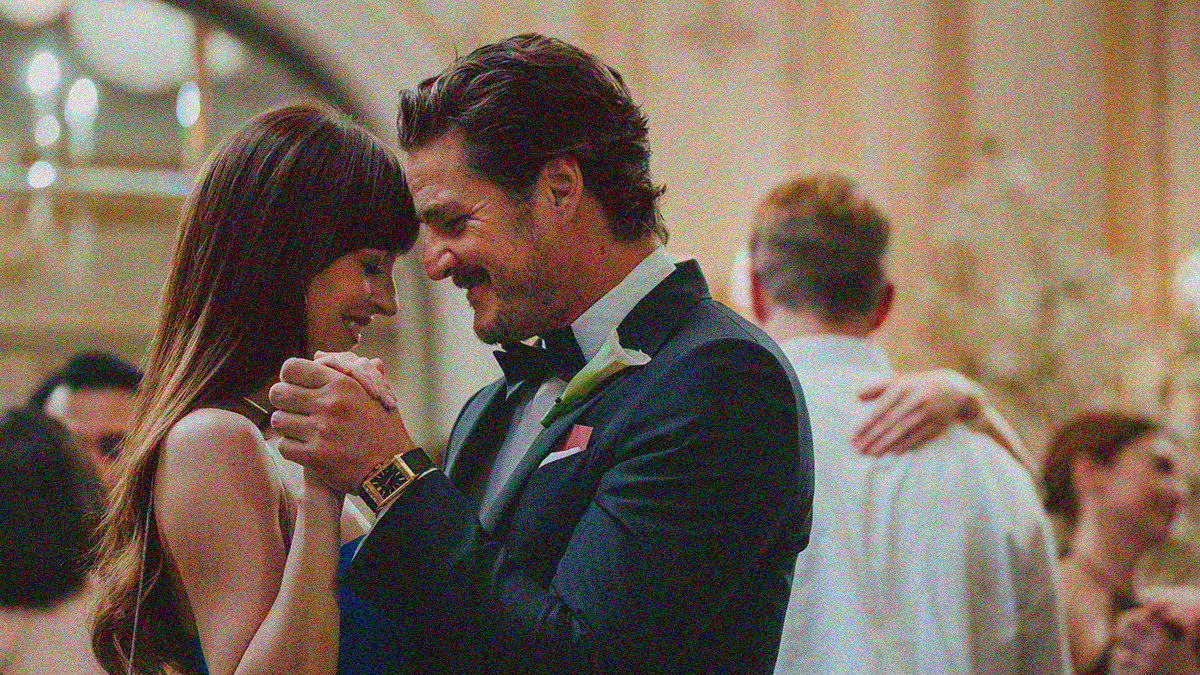
I am desperate to know Celine Song's direction to John Magaro since his entire performance is just one phone conversation that unfolds prior to us learning the context behind its enthusiasm. Did he read the script? Did he know what actually happened in contrast to his words? Or did he just play the page as it was written?
The fact there are so many possibilities behind his read epitomizes the film and its dissection of the human condition where it comes to dating versus love. While the former can feasibly be conducted via an algorithm—whether an app or matchmaker crunching the same numbers manually—the latter can only prove a happy yet unlikely accident from its results. A further truth is that the math only mitigates the risk of compatibility in the sense of time management. And those stats can be manipulated in ways where the risk to one's safety during that time (and beyond) may always be exponentially greater than you think.
Good on Song for going there because her great rom-com premise (girl with nothing who desperately wants everything meets boy who wants for nothing and desperately seeks an equal with whom to share it despite not being the soulmate that girl's self-loathing keeps trying to make her forget) would have succeeded on its own. She instead wields her sexual assault subplot in a way that never diminishes its horror while also utilizing it (conveniently or not) to help prove her point (narratively and generally where it comes to human value over statistics).
Best touch: Augmenting Pedro Pascal's "unicorn" status by having the shot of Dakota Johnson's approach catch him entertaining a child rather than another woman with that dance.
7/10
The Smashing Machine
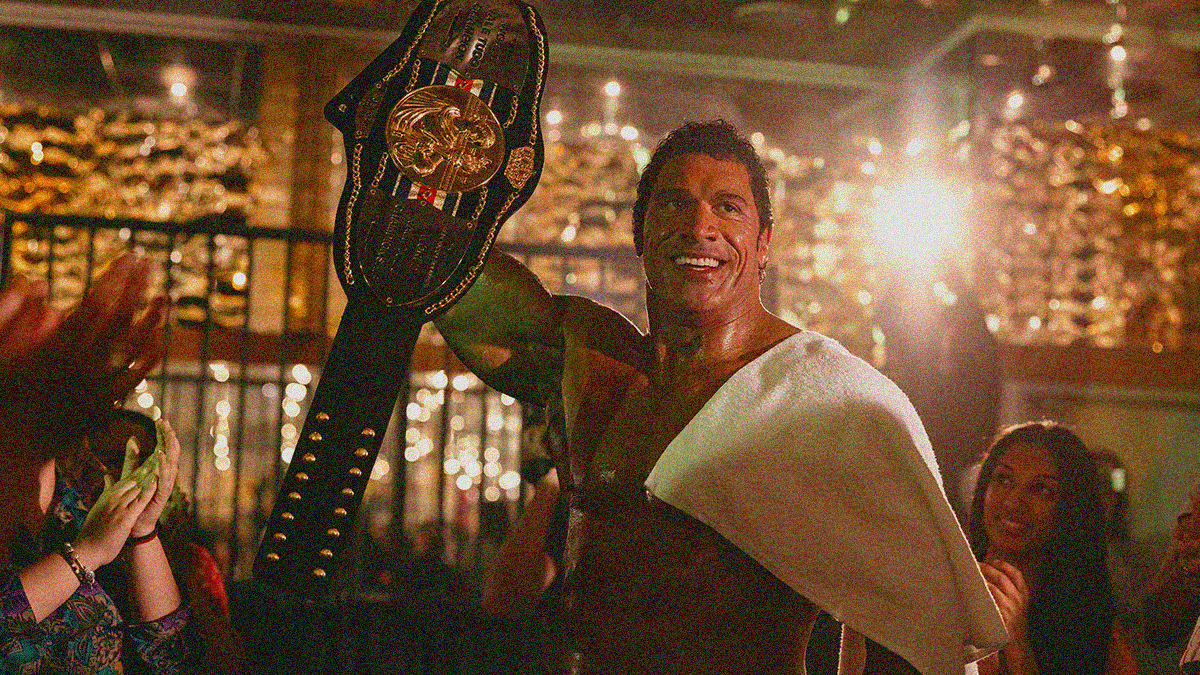
The Mark Kerr on-screen in Benny Safdie's The Smashing Machine is a fascinating, soulful, lovable character who proves why he deserves a biopic beyond just his place as an MMA pioneer. I'm just not sure the vérité nature that made Good Time and Uncut Gems so iconic works to get the job done. It's one thing to use that technique in an intense but brief timeframe. It's another to do so with a sprawling drama splitting focus onto two more characters over three years.
I feel like I didn't really learn much about any of them beyond surface personalities and quick bursts of extreme emotion. I really wanted to dig into what appeared like OCD as far as Kerr's compulsion for instructions to be meticulously followed—something that spills into his inability to cope with losing when losing was never (logically or not) in his plans. But we just move right to the next check stop. The next fight that feels compiled of b-roll documentary footage (John Hyams, director of a 2002 doc of the same name, is a consulting producer here) set to a quiet, jazzy score.
Issues with the script and pacing aside, I did think the period aesthetic was excellent. This thing looks phenomenal. And while we all knew Emily Blunt could elevate material to the point where performance outshines its narrative use, I was very impressed by Dwayne Johnson proving just as capable. Man, was he great. Justifiably yet mournfully tempestuous. Infectiously and inspirationally jubilant. He owns every single frame.
6/10

This week saw Hotshot (1986) and Red Dawn (2012) added to the archive (cinematicfbombs.com).
Chris Hemsworth dropping an f-bomb in RED DAWN.

Opening Buffalo-area theaters 11/21/25 -
• 120 Bahadur at Regal Elmwood
• Baristas vs Billionaires at North Park Theatre (select times)
• Eko at Regal Elmwood
• Köln 75 at North Park Theatre (select times)
Full thoughts are above.
• Mastiii 4 at Regal Elmwood
• Middle Class at Regal Elmwood
• Planes, Trains and Automobiles at Regal Elmwood, Transit, Galleria, Quaker
My thoughts from back in 2009 at jaredmobarak.com.
• Rental Family at Dipson Amherst, Flix, Capitol; Regal Elmwood, Transit, Galleria, Quaker
• Sisu: Road to Revenge at Dipson Capitol; AMC Market Arcade; Regal Elmwood, Transit, Galleria, Quaker
• Wicked: For Good at Dipson Amherst, Flix, Capitol; AMC Maple Ridge, Market Arcade; Regal Elmwood, Transit, Galleria, Quaker
Streaming from 11/21/25 -
• The Bad Guys 2 (Peacock) - 11/21
• The Conjuring: Last Rites (HBO Max) - 11/21
• The Family Plan 2 (AppleTV+) - 11/21
• Good Boy (Shudder) - 11/21
"It’s an enjoyable film with a flawed premise since the dog’s indifference to the supernatural prevents the house from being haunted. This is a dog trying to avoid Death’s obstacles to give his owner one final hug." – Full thoughts at HHYS.
• One Shot with Ed Sheeran: A Music Experience (Netflix) - 11/21
• Train Dreams (Netflix) - 11/21
• Oh, Hi! (Netflix) - 11/22
"I loved the parts I loved and I was bored by the parts that added nothing to the central question. The absurdity might be fun, but Gordon and Lerman’s shared complexity is what intrigues." – Full thoughts at HHYS.
• Under Fire (Hulu) - 11/22
• Chris Hemsworth: A Road Trip to Remember (Disney+) - 11/24
• The Shuffle (HBO Max) - 11/25
• Jingle Bell Heist (Netflix) - 11/26
• Sidelined 2: Intercepted (Tubi) - 11/27
Now on VOD/Digital HD -
• The Balconettes (11/18)
• Go for Broke (11/18)
• If I Had Legs I'd Kick You (11/18)
• Lesbian Space Princess (11/18)
• Pools (11/18)
• Reawakening (11/18)
• Sauna (11/18)
• Shelby Oaks (11/18)
• Stitch Head (11/18)
• Vindication Swim (11/18)
• Violent Ends (11/18)
• Dog Patrol: Operation Santa Paws (11/20)
• Altered (11/21)
• Anniversary (11/21)
"And through those evolutions we receive what is probably the best ensemble of performances this year with a wealth of impassioned acts of courage and crucial examples of ambiguity when motivation and reality diverge." – Full thoughts at HHYS.
• Megadoc (11/21)
• The ReWrite. (11/21)
• Reverence (11/21)
• Time Travel is Dangerous (11/21)

Pieces from the The Deep End (2001) press kit.
